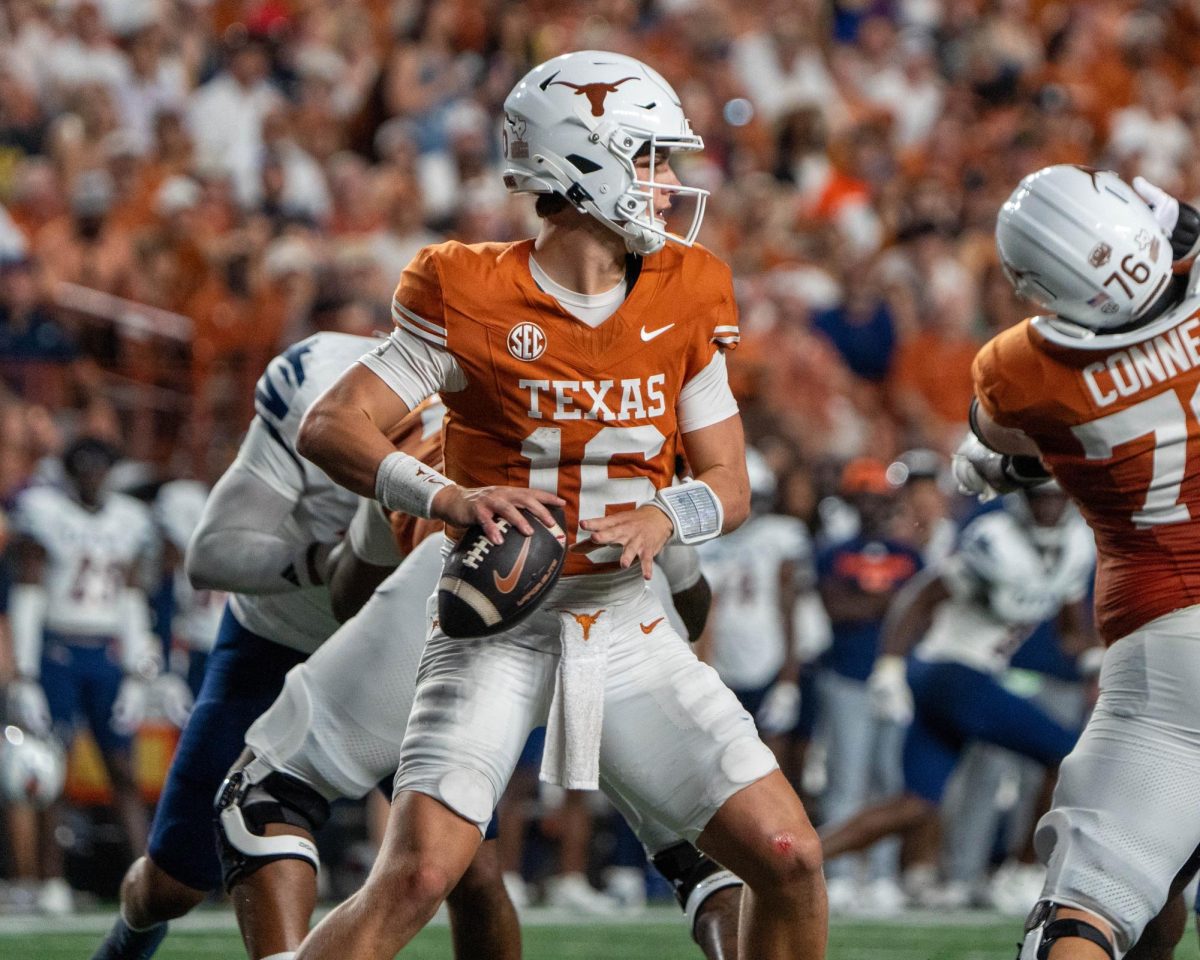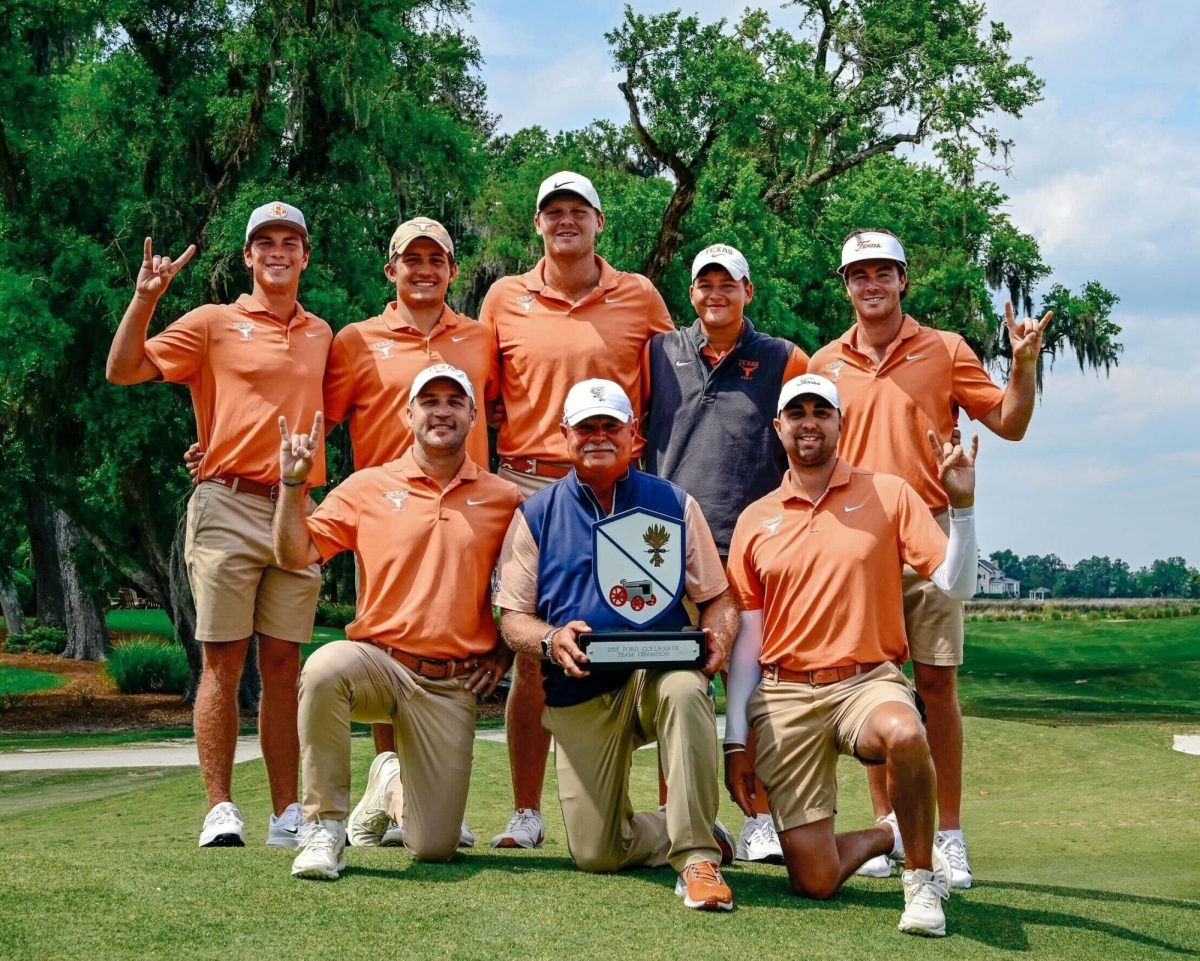It may not be a matter of if Texas will play Texas A&M again, but when.
Men’s athletics director DeLoss Dodds said he believes the Longhorns and Aggies will eventually renew their rivalry, but that a period of time to allow animosities to subside would be needed.
“I think we’ll play sometime,” Dodds said. “I don’t know when it will happen or how it will happen, but I’m sure it will happen.”
In their last meeting, the Longhorns beat the Aggies, 27-25, at Kyle Field on Thanksgiving Day in 2011 after Justin Tucker hit a game-winning 40-yard field goal as time expired. That was the 118th and final time the two rivals squared off before Texas A&M left the Big 12 for the SEC.
“They left,” Dodds said. “They’re the ones that decided not to play us. We get to decide when we play again. I think that’s fair. If you did a survey of our fans about playing A&M, they don’t want to. It’s overwhelming. I know. I hear it. Our fans are important to us. I think there’s got to be a period where things get different. I think there’s too many hard feelings.”
ACC alliance
The college football landscape has shifted recently, especially in the Big 12, which lost Colorado to the Pac-12, Nebraska to the Big 10 and Texas A&M and Missouri to the SEC over the last two years. But the Big 12 is now pursuing an alliance with the ACC that would facilitate both conferences to schedule games against each other every year and allow them to share TV revenue.
Could this alliance serve to, not only benefit the Big 12 and ACC, but also to stabilize this college football landscape?
“If you walk through it, the Pac-12 truthfully has no place to go to pick up teams, except the Big 12,” Dodds said. “The SEC and the Big 10 can pick up teams, but it’s only probably the ACC teams, maybe the Big East. So they’re the conference that could be under attack. And the alliance between the Big 12 and the ACC, I think, strengthens them. I think that the Notre Dames of the world, it would unite them a little bit, toughen them a little bit. Then I think it would be less likely that anyone could pick one of their schools up.”
Tougher road
Despite its recent struggles, Texas can still claim the last national championship won by a non-SEC team. The SEC has captured each of the last seven national titles, with Alabama winning three of the last four.
But now that the Big 12 has 10 teams, each of them plays the other nine every year. The conference champion, when the Big 12 had 12 teams, was decided by a conference title game. With the Big 12 down to 10 schools, there is no longer a conference championship and that’s just how Dodds likes it.
“I think if you get to 12, you’d probably have to do it because you don’t play everybody,” Dodds said. “I think when you play everybody, having a championship game is a real advantage to the team that lost. Let’s say you play the nine games and you beat Oklahoma and then you have the championship game and you play Oklahoma. That gives Oklahoma an edge. If you’ve got 12, you might have played them, but they’ll be coming from the other division.”
Two years ago, previously unbeaten Oklahoma State was ranked No. 2 and seemed poised to represent the Big 12 in the national title game. But the Cowboys were upset by Iowa State in Ames in double overtime and they had to settle for a Fiesta Bowl victory over Stanford.
Last season, it was Kansas State that would have reached the BCS National Championship if it had run the table. Instead, the Wildcats were crushed by Baylor in Waco, 52-24 last November and eventually fell to Oregon in the Fiesta Bowl.
“It’s hard to get out of it,” Dodds said of the Big 12’s round-robin schedule. “But if you get out of it, you’re straight into the national championship. If you can go straight through our conference, it’s a direct line to the national championship. In the SEC, Alabama hadn’t play Georgia for four years. So there’s maybe some advantages to it. They play some non-conference games late in the season that soften their schedule. The Big 12 is a tougher road to get there than the SEC because of their scheduling abilities.”
Many SEC teams schedule games against weak non-conference opponents late in the regular season to give themselves a break from the rigorous slate against SEC foes. Dodds said that something similar could happen in the Big 12.
“Our TV partner would like to see us play conference games early,” Dodds said. “So there’s some windows in our package that are really weak because they’re playing all non-conference games. So they want us to play a conference game up there, which would put a non-conference game down there, which is what our network wants.”




















